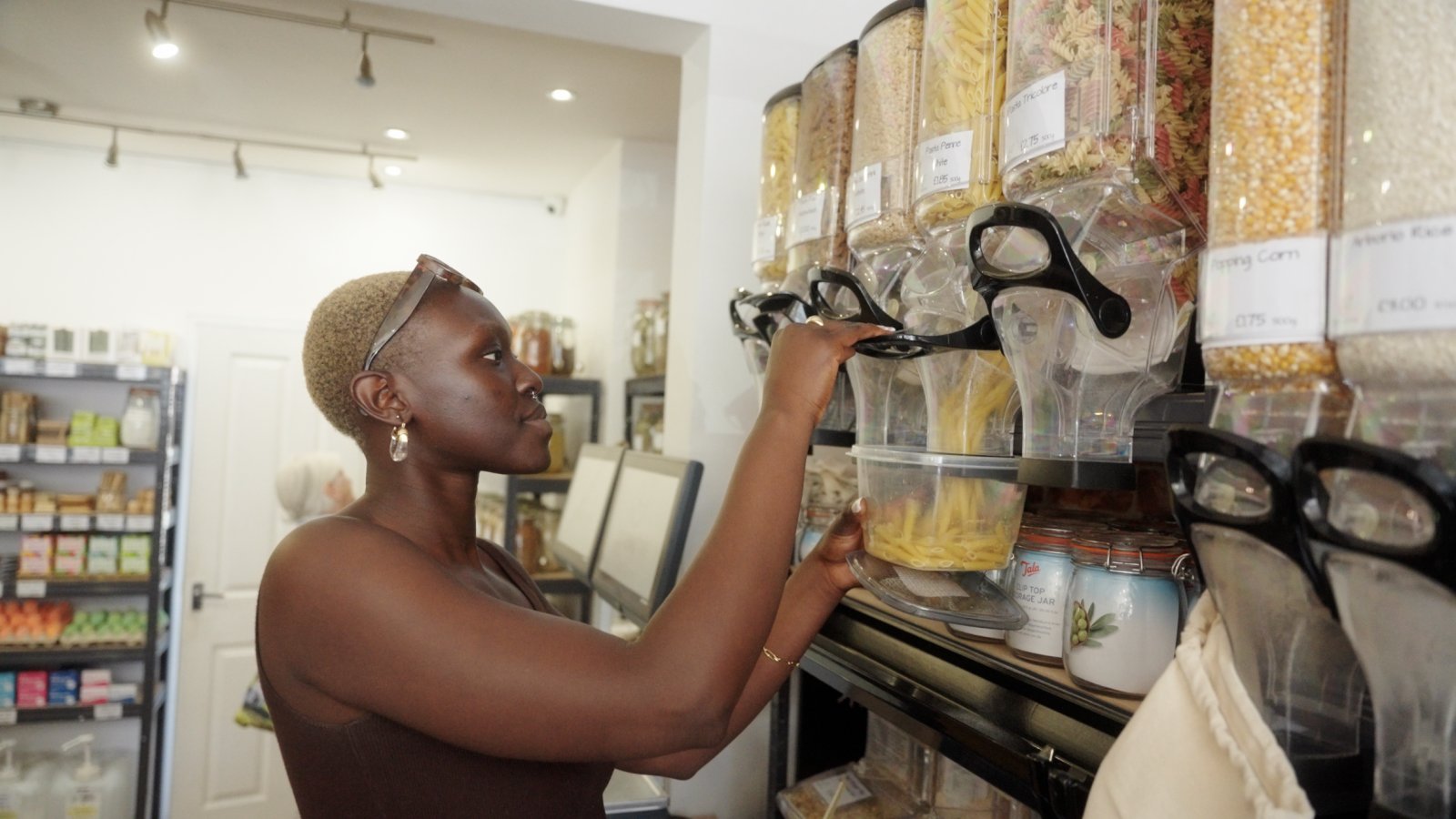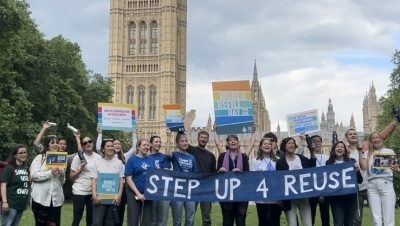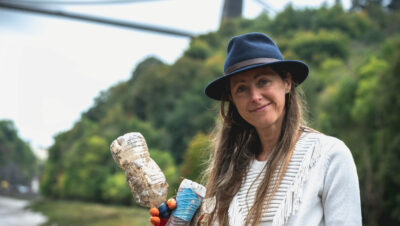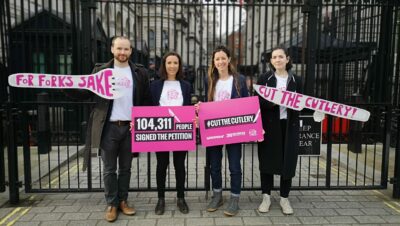News / Plastic
Pollution pioneers urge residents to support refill revolution
A Bristol charity made history when it set up the first Refill Day in 2015.
Pioneering environmental campaigners City to Sea organised the day to raise awareness of plastic pollution and how easily it can be avoided by using refill and reuse options for everyday goods.
The awareness day captured imaginations and grew into an annual international event,
is needed now More than ever
Now on World Refill Day, which takes place every year on June 16, the charity is urging people to take up a personal challenge to swap single-use for refills for five days.
They say the challenge is a “simple, impactful way to build new habits” that curb pollution at source, where plastic waste totals 1.7bn pieces thrown away by UK households per week, amounting to 100bn pieces per year, with only nine per cent across the UK being recycled.
Participants can swap out single-use for reusable coffee cups and water bottles, take a lunchbox for office meals and takeaways, refill milk bottles, and make an extra effort to shop packaging free.
Support comes from City to Sea’s Refill Return app which lists more than 300,000 places to eat, drink and shop with less plastic.
“There has never been a more important time to work on reducing your plastic waste, which is still a huge environmental issue,” said Stephanie Mizzi, managing director of Scoop Wholefoods on Whiteladies Road.
“By shopping at refill stores like Scoop, customers can reduce the waste generated from their food shop dramatically as we often work with ‘closed loop’ suppliers meaning that all goods are sent to us in reusable containers.
“Shopping this way also significantly reduces the amount of CO2 emissions generated as the amount of energy and fossil fuels required to make plastic packaging is completely eliminated. Not to mention that products are typically sourced much more locally than they would be in supermarkets.
“Bristol has always done such a fantastic job at putting environmental factors at the forefront of their purchase decisions – we just need to keep the momentum going and encourage other cities to follow suit!”
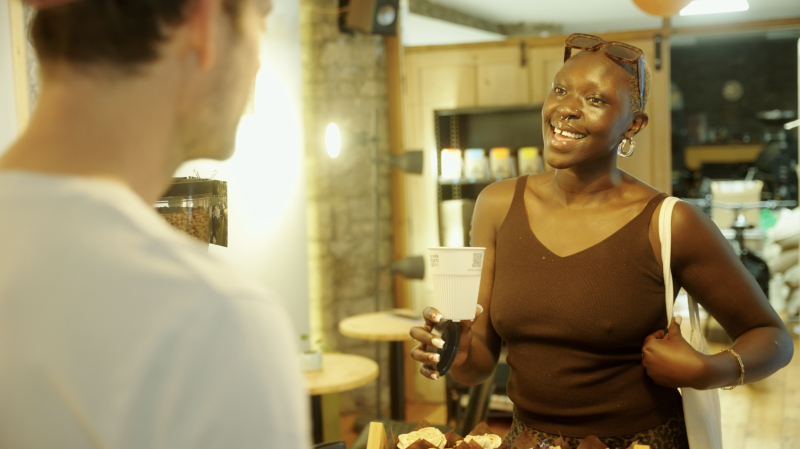
Lost Horizon roastery and coffee shop in St Jude’s uses reusable tubs for its beans which are delivered by bike; it’s just one of many refill and reuse options for consumers in Bristol including Scoop Wholefoods on Whiteladies Road, Scoopaway Health Foods on Gloucester Road and Zero Green on North Street in Bedminster
Mizzi is right in that Bristol is currently leading the way in England, with 61 per cent of people in the region refilling a reusable water bottle at least once a week compared to 48 per cent in London and 54 per cent in the north west.
City to Sea are known for Switch the Stick, the campaign to ban plastic cotton buds, as well as Cut the Cutlery, which saw single-use cutlery, plates and bowls banned in England, and the Plastic Free Periods campaign.
The charity is keen to emphasise that small swaps can go a long way: with over 7m takeaway cups are thrown away every day in the UK, if one in ten consumers swapped out their single-use cup for a reusable option for five days 3.5m cups would be saved from landfill.
City to Sea has calculated this equates to 43 tonnes of plastic and 62 tonnes of CO2, a carbon usage equivalent to 97 flights from London to New York.
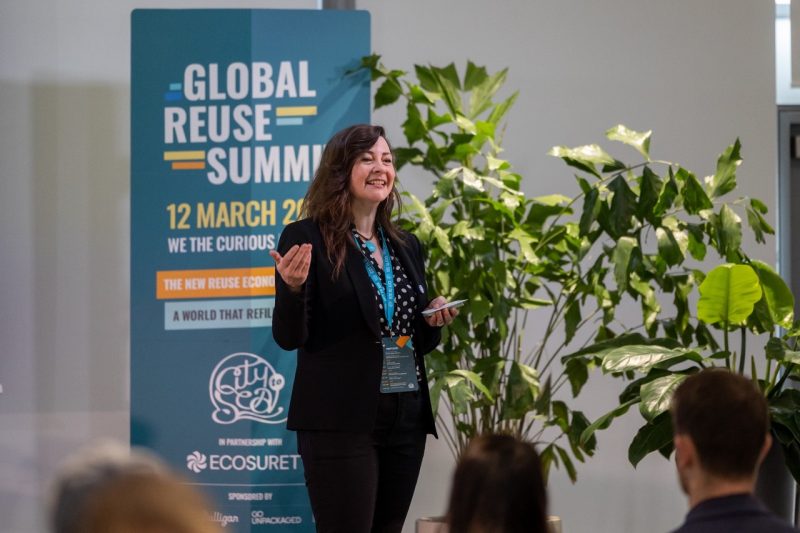
City to Sea, set up by Natalie Fee and now led by Jane Martin, organised the Global Reuse Summit which took place in Bristol in 2023
The five-day challenge will support people to take action on plastic pollution, but City to Sea says more should by done by brands, retailers and policymakers to support a “refill and reuse revolution”.
In particular, south west residents would like to see more action on plastic-wrapped fruit and vegetables.
While the government’s Simpler Recycling scheme, due to be implemented in 2027, will introduce soft plastic recycling facilities, it will not help to eliminate plastic waste in its entirety.
Plastic can only be recycled into new materials seven times before ending up in landfill where it can take centuries to breakdown or never fully degrade, with tiny particles entering the natural environment including crops.
“This is about more than individual choice,” CEO Jane Martin said.
“If people forget their reusable bottle or don’t know where to refill, the system is failing them. We want to make reuse the easy, obvious option – everywhere from big events to high street stores.
“And making just one swap for five days will show the impact we can have when we all pull together.”
Find out more and sign up to the five day challenge at refill.org.uk/take-action-for-world-refill-day
All images: City to Sea
Read next:
 Our newsletters emailed directly to you
Our newsletters emailed directly to you